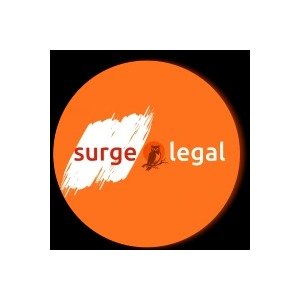Best Land Use & Zoning Lawyers in Gordon
Share your needs with us, get contacted by law firms.
Free. Takes 2 min.
Free Guide to Hiring a Real Estate Lawyer
List of the best lawyers in Gordon, Australia
About Land Use & Zoning Law in Gordon, Australia
Land Use and Zoning laws in Gordon, Australia are regulations put in place to control how properties in specific geographic zones can be utilised. These laws can encompass everything from property development to building designs and placement, all the way to designating zones for residential, commercial, or industrial uses. They are governed primarily by the territories’ Planning and Development Act but also vary depending on the specific Plan of Management put in place by local government.
Why You May Need a Lawyer
Legal help may be required in a variety of scenarios related to Land Use and Zoning. This can involve disputes regarding property boundaries, acquiring permits, rezoning applications or objecting to planning decisions. Lawyers can help interpret the complex Local Environmental Plans (LEPs) and zoning regulations, assist in disputes, represent you at council meetings or land court, and ensure all development proposals and applications are correctly lodged and comply with the respective laws.
Local Laws Overview
Local laws in Gordon, Australia, falling under the domain of Ku-ring-gai Council, are guided by the Ku-ring-gai Local Environmental Plan. This involves a number of zoning regulations designating where residential, commercial, or industrial activities may occur. It also includes stipulations around heritage protection, vegetation preservation, environmental conservation, and visual amenity. Any development or use of land must comply with these laws. Furthermore, certain subdivisions and amendments might necessitate a planning proposal.
Frequently Asked Questions
What is residential zoning?
Residential zoning refers to specific areas within Gordon designated for housing. Different types of houses such as single dwellings, duplexes or multi-dwelling structures each have distinct zones according to density and character of the neighbourhood.
How can I change the zoning of my property?
Zoning changes require formal applications lodged to the local council. It involves a detailed analysis of a variety of factors, and often requires expert legal help to ensure compliance with local laws and regulations.
What are land use rights?
Land use rights refer to the property owner's privilege to use their land as per the stipulations of the zoning regulations and overall planning laws. This can include how buildings are constructed, what trade can occur on the premises and environmental restrictions.
Is there a limit to building on my property?
Yes, there are limits in every zone regarding building such as building densities, heights, environmental considerations, and heritage preservation.
Can I object to a development in my area?
Yes, you have the right to object to a proposed development in your area if you believe it could impact your property or the liveability of the neighbourhood.
Additional Resources
Additional resources include the Ku-ring-gai Council website, the New South Wales Department of Planning, Industry and Environment, and the Housing Industry Association. These provide detailed information and guidance about Land Use and Zoning in Gordon and the wider state of New South Wales.
Next Steps
If you need legal assistance in Land Use and Zoning, it is recommended to seek professional advice from a lawyer who specializes in this area of law. Prepare all relevant documentation and have a clear understanding of your goal before the consultation, causing your attorney to best represent your interests.
Lawzana helps you find the best lawyers and law firms in Gordon through a curated and pre-screened list of qualified legal professionals. Our platform offers rankings and detailed profiles of attorneys and law firms, allowing you to compare based on practice areas, including Land Use & Zoning, experience, and client feedback.
Each profile includes a description of the firm's areas of practice, client reviews, team members and partners, year of establishment, spoken languages, office locations, contact information, social media presence, and any published articles or resources. Most firms on our platform speak English and are experienced in both local and international legal matters.
Get a quote from top-rated law firms in Gordon, Australia — quickly, securely, and without unnecessary hassle.
Disclaimer:
The information provided on this page is for general informational purposes only and does not constitute legal advice. While we strive to ensure the accuracy and relevance of the content, legal information may change over time, and interpretations of the law can vary. You should always consult with a qualified legal professional for advice specific to your situation.
We disclaim all liability for actions taken or not taken based on the content of this page. If you believe any information is incorrect or outdated, please contact us, and we will review and update it where appropriate.








